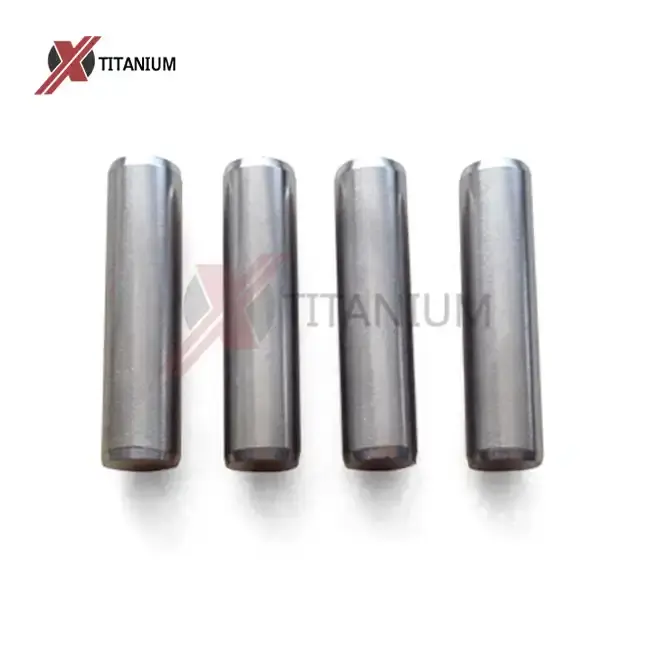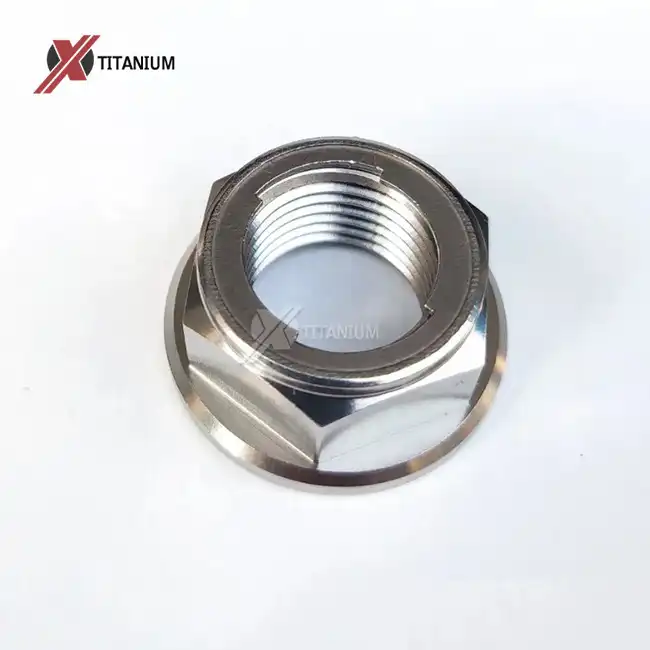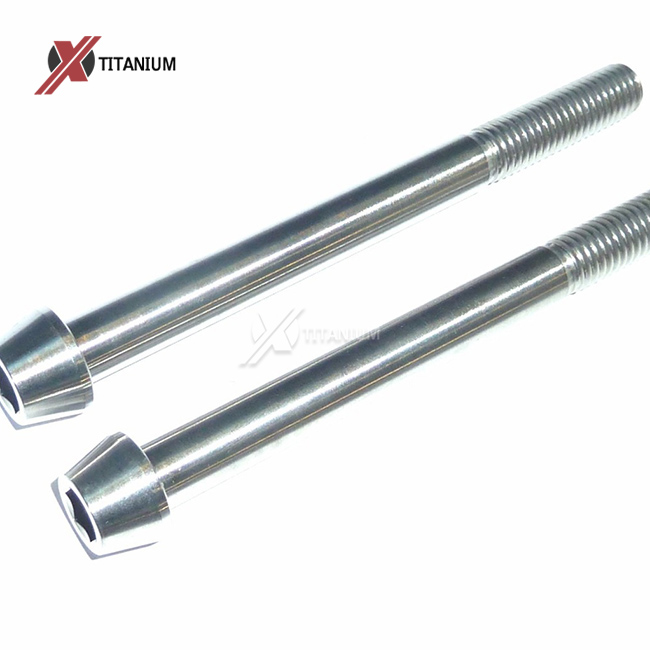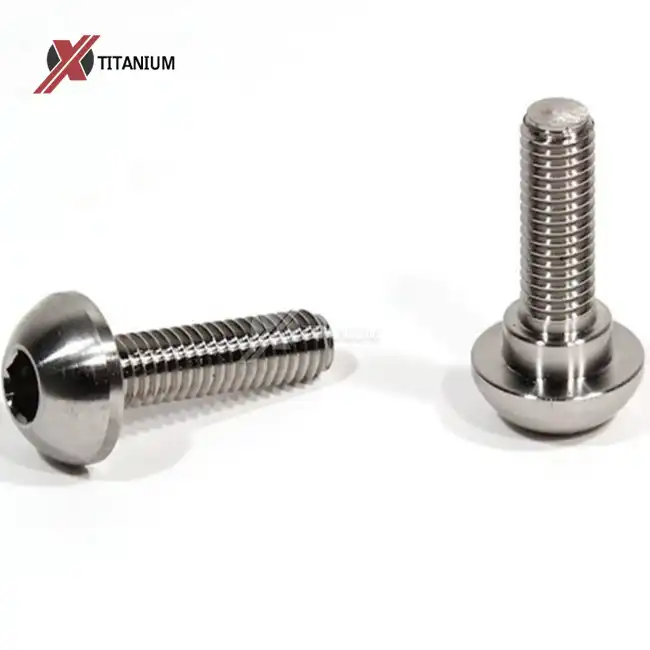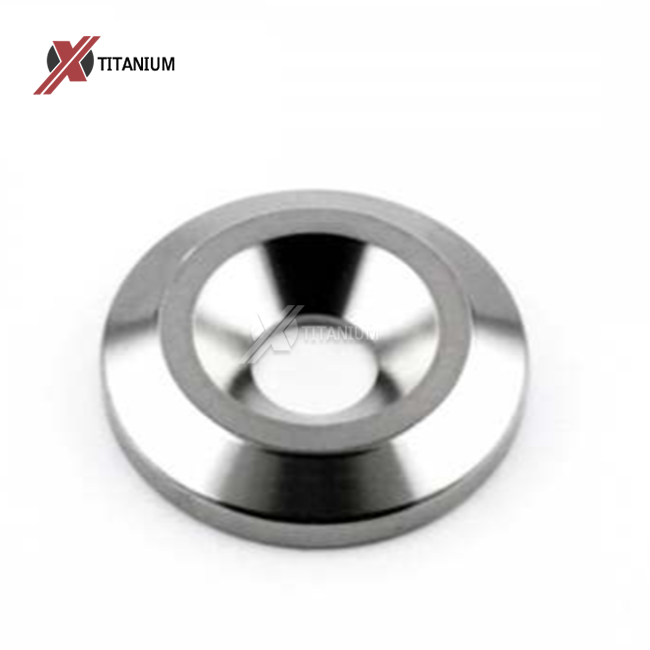Comprehending Titanium Dowel Pins and Their Applications
What Are Titanium Dowel Pins?
Titanium dowel pins are cylindrical fasteners crafted from high-quality titanium or titanium alloys. These pins serve as crucial components in various industries, offering exceptional strength-to-weight ratio and corrosion resistance. Typically, titanium dowel pins are manufactured using Grade 2 or Grade 5 (Ti-6Al-4V) titanium, known for their superior mechanical properties and biocompatibility.
The dimensions of titanium dowel pins can vary significantly, with diameters ranging from 1 mm to 50 mm and lengths spanning from 5 mm to 200 mm. This versatility allows for their use in a wide array of applications, from precision machinery to medical implants. The surface finish of these pins is often smooth and polished, though custom finishes can be applied to meet specific requirements.
Key Properties of Titanium Dowel Pins
Titanium dowel pins boast several remarkable properties that make them indispensable in many applications:
- High Strength: With a tensile strength of approximately 900 MPa, titanium dowel pins can withstand substantial loads without deformation.
- Corrosion Resistance: These pins exhibit excellent resistance to saltwater, acids, and alkalis, making them ideal for harsh environments.
- Lightweight: Titanium's low density contributes to weight reduction in assemblies where every gram matters.
- Biocompatibility: Grade 5 titanium, in particular, is widely used in medical applications due to its compatibility with human tissue.
- Temperature Resistance: Titanium maintains its structural integrity across a wide range of temperatures.
Common Applications of Titanium Dowel Pins
The unique combination of properties offered by titanium dowel pins makes them suitable for diverse applications across multiple industries:
- Aerospace: Used in aircraft engines, structural components, and satellite systems.
- Medical: Employed in orthopedic implants, dental prosthetics, and surgical instruments.
- Automotive: Found in high-performance engines, racing components, and luxury vehicle parts.
- Marine: Utilized in shipbuilding, offshore platforms, and underwater equipment.
- Chemical Processing: Applied in reactors, heat exchangers, and pumps handling corrosive substances.
- Sports Equipment: Incorporated into high-end bicycles, golf clubs, and other performance gear.
Techniques for Securing Titanium Dowel Pins
Interference Fit Method
The interference fit method, also known as press fit or friction fit, is a widely used technique for holding titanium dowel pins in place. This method relies on the principle of creating a tight fit between the pin and the hole it's inserted into. The process involves the following steps:
- Precise Sizing: The hole is machined to a diameter slightly smaller than the pin's diameter.
- Controlled Insertion: The pin is pressed into the hole using specialized equipment to ensure even pressure distribution.
- Material Deformation: As the pin is inserted, both the pin and the surrounding material slightly deform, creating a strong frictional bond.
The effectiveness of the interference fit depends on factors such as the materials involved, the amount of interference, and the surface finish of both the pin and the hole. When properly executed, this method provides a secure hold without the need for additional fasteners or adhesives.
Adhesive Bonding
Adhesive bonding offers another reliable method for securing titanium dowel pins. This technique is particularly useful when interference fit is not feasible or when additional strength is required. The process typically involves:
- Surface Preparation: Both the pin and the hole are cleaned and possibly treated to enhance adhesion.
- Adhesive Selection: A high-strength, metal-bonding adhesive compatible with titanium is chosen.
- Application: The adhesive is applied to either the pin, the hole, or both, ensuring even coverage.
- Assembly: The pin is inserted into the hole, and any excess adhesive is removed.
- Curing: The assembly is allowed to cure according to the adhesive manufacturer's specifications.
Adhesive bonding can provide excellent strength and sealing properties, making it suitable for applications where vibration resistance or fluid tightness is crucial.
Mechanical Fastening Techniques
In some cases, additional mechanical fastening methods may be employed to further secure titanium dowel pins. These techniques can be used in conjunction with interference fit or adhesive bonding for added reliability. Common mechanical fastening methods include:
- Set Screws: A small screw is inserted perpendicular to the pin, pressing against it to prevent movement.
- Retaining Rings: A circular fastener is installed in a groove on the pin or surrounding structure to limit axial movement.
- Pinning: A smaller pin is inserted through the dowel pin and the surrounding material, locking it in place.
- Staking: The material around the pin is deformed or "staked" to create a physical barrier against pin movement.
The choice of mechanical fastening technique depends on factors such as the specific application, load requirements, and ease of assembly or disassembly.
Best Practices for Installing and Maintaining Titanium Dowel Pins
Proper Installation Procedures
Ensuring the correct installation of titanium dowel pins is crucial for their long-term performance and reliability. Follow these best practices during the installation process:
- Precise Hole Preparation: Ensure that the hole is machined to the correct size and tolerance for the chosen fitting method.
- Cleanliness: Thoroughly clean both the pin and the hole to remove any debris, oils, or contaminants that could affect the fit or bonding process.
- Alignment: Use appropriate tools and fixtures to ensure perfect alignment during insertion, preventing uneven stresses or misalignment.
- Controlled Force: When using interference fit, apply force gradually and evenly to avoid damaging the pin or surrounding material.
- Temperature Consideration: In some cases, heating the surrounding material or cooling the pin can facilitate easier insertion for tight fits.
- Adhesive Application: If using adhesives, follow the manufacturer's guidelines for application, curing time, and temperature requirements.
Maintenance and Inspection
Regular maintenance and inspection of titanium dowel pins are essential to ensure their continued effectiveness and to prevent potential failures. Implement the following practices:
- Periodic Visual Inspections: Regularly check for signs of wear, corrosion, or loosening of the pins.
- Non-Destructive Testing: Utilize techniques such as ultrasonic testing or dye penetrant inspection to detect any internal flaws or cracks.
- Torque Checks: For pins secured with set screws or other threaded fasteners, perform periodic torque checks to ensure they remain tight.
- Environmental Monitoring: In corrosive environments, monitor the surrounding conditions and take preventive measures to protect the pins if necessary.
- Documentation: Maintain detailed records of installation dates, inspection results, and any maintenance performed.
Troubleshooting Common Issues
Despite proper installation and maintenance, issues with titanium dowel pins may occasionally arise. Here are some common problems and potential solutions:
- Loose Pins: If a pin becomes loose, reassess the fitting method. Consider using a larger pin, applying adhesive, or implementing additional mechanical fastening.
- Corrosion: In the rare event of corrosion, investigate the environmental factors causing it. Consider applying protective coatings or changing to a more corrosion-resistant titanium grade.
- Wear: If excessive wear is observed, evaluate the loading conditions and consider using a harder titanium alloy or surface treatment.
- Cracking: In high-stress applications, cracks may develop. Analyze the stress distribution and consider redesigning the assembly or using a higher-strength titanium grade.
Conclusion
Titanium dowel pins offer exceptional strength, corrosion resistance, and versatility across various industries. By understanding their properties and implementing proper installation and maintenance techniques, engineers and manufacturers can maximize the benefits of these advanced fasteners. Whether utilizing interference fit, adhesive bonding, or mechanical fastening methods, the key lies in selecting the appropriate technique for each specific application.
For those seeking high-quality titanium dowel pins and expert guidance on their application, Baoji Chuanglian New Metal Material Co., Ltd. stands ready to assist. With over a decade of experience in titanium product manufacturing and research, we offer a comprehensive range of titanium fasteners and components. To learn more about our titanium products and how they can benefit your projects, please contact us at info@cltifastener.com or djy6580@aliyun.com.
